How to Prepare for Deer Season | Essential Hunting Tips
Posted by Mandu Moses on Sep 27th 2024
The fall season marks the beginning of a busy schedule for deer hunters. For passionate hunters, it is a time to make the most of the pre-season hunting preparations. But for new hunters, the season comes with a lot of confusion on what to carry and where to hunt.
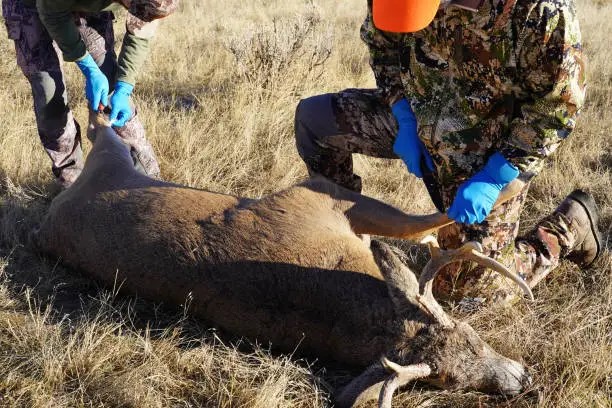
Credit: Melissa Kopka
Preparing for your first deer hunting adventure is a thrill that never gets old. However, with it comes a mix of expectations and activities you must complete before the season ends. Hence, here are a few ways to prepare for the deer season, whether you are a new or returning hunter.
How to Prepare for Deer Hunting Season
Preparing for deer hunting season involves several steps to ensure a successful and safe hunting experience. Here are some essential tips:
Stay Updated With the Local Deer Hunting Laws
Hunting laws in some states change yearly, and you might be surprised that last season's laws are not applicable this season. Therefore, ensure you have registered or renewed your hunting license before you start ticking your hunting checklist. Those under 12 may also need a Mentored Youth Permit and a licensed mentor above 21 years to accompany them when hunting.
Staying updated with the local deer hunting laws involves:
- Checking all the area’s baiting and feeding restrictions.
- Getting proper licenses and tags.
- Knowing all the legal hunting season dates.
- Understanding your bag limits.
Get Hunting Permission.
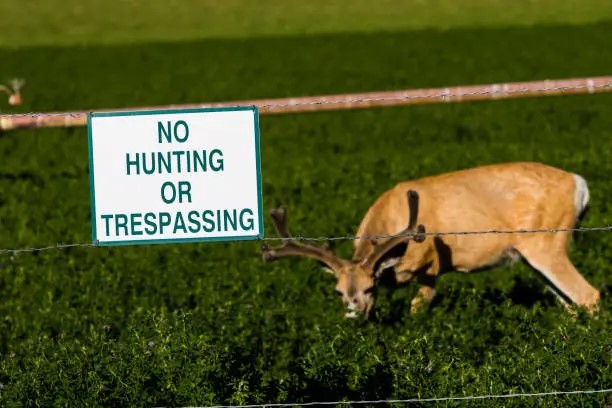
Credit: Roitan
You will not need permission if you are hunting on your land. But you will need permission to access and track down deer that run onto someone's property. That means you have an ethical requirement to contact landowners and talk to them about your hunting plan. Ensure you have written permission outlining your access, limitations, and property layout.
Talk to Farmers and Fellow Hunters
You should learn what is happening in your hunting area, especially if you are new. That is why you must talk to farmers who spend most of their time on the land. Most farmers also receive many requests to hunt on their farms, and talking to them early can help you pick the best spots.
You can also talk to your fellow hunters about your season plans. Experienced hunters will give you the best tips and equipment and even offer to add you to their groups.
Gear and Equipment Checklist
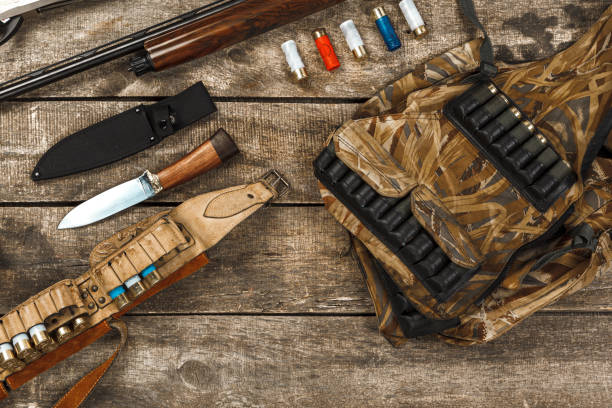
Credit: FabrikaCr
Firearm or Bow: Ensure your weapon of choice is in good working condition. Clean and perform any necessary maintenance on your firearm or bow well before the season starts.
Ammunition and Arrows: Stock up on the right ammunition or arrows for your weapon. Consider practicing with the same type you’ll use during the hunt.
Hunting Attire: Invest in quality camouflage that suits the environment you’ll be hunting in. Don’t forget a blaze orange vest or hat for safety.
Scent Control: Deer have an excellent sense of smell. Use scent-eliminating sprays on your gear and consider scent-control clothing.
Know Your Hunting Weapon and Equipment
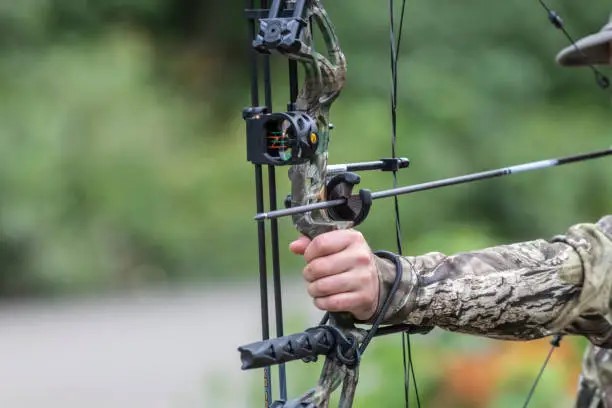
Credit: Stefan Malloch
Once you have your hunting license and permissions, it is time to prepare your hunting weapon and equipment. Many hunters wait until the hunting season rolls around to check their gear. You must prepare your hunting weapon and equipment on time to save time and money.
Some of the weapons and hunting equipment to check beforehand include:
-
A Hunting Rifle or Bow
Sighting in your rifle or bow some weeks before the hunting season saves you the stress of waiting in line at the shooting range. Take time to get your hunting rifle or bow in order and practice to make accurate shots. Starting early will also teach you about your weapon's operations and safety features.
-
Tree Stands
Tree stand accidents are common during the hunting period. Therefore, it is vital to understand your tree stand and stay safe when hunting. Some of the tree stand checking recommendations include:
- Check the manufacturer's instructions and warnings before using tree stands and full-body harnesses (FBH).
- Before every use, look for signs of wear, cracks, and loose or missing nuts on straps and chains.
- Practice ground level with your harnesses and tree stand with another person before you go hunting.
- Learn how to use your harness with a suspension release device.
-
Trail Cameras
Trail cameras are essential in tracking deer movement and collecting photos. Setting up your trail cameras will help you understand deer movement patterns and know which deer use your hunting area as their home range.
Create a Hunting Strategy
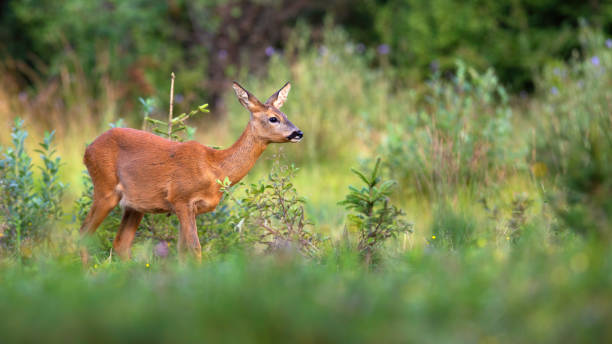
Credit: Anna Richard
Sort out your hunting strategy a few months before your hunt. This will help you know how to track down or draw deer to your area and harvest them easily. Some of the key factors to consider when creating your hunting strategy include:
- Where will you hunt? Is it your property or someone's land? How many deer are you targeting? This is where a mineral site and trail camera come in handy to determine your deer ratios and pattern bucks.
- The type of attractant you use. Using the right attractant will pull in more deer effectively.
Have a Hunting Plan
Having a hunting plan may fall under your hunting strategy. But it is a wise idea to set it separately if you are more concerned about your safety. Don't fall victim to the "I will be fine" mentality, and leave your printable hunting plan with someone you trust before every hunt. This will help your friends and family know about your whereabouts in case of anything.
A good hunting plan should include:
- Where you are hunting and with whom.
- What time or which day do you expect to return?
- The map of the route to your destination.
- Your alternate destination in case of weather changes.
- Your cell phone number and carrier in case law enforcement wants to find you.
Plan for Your Harvest
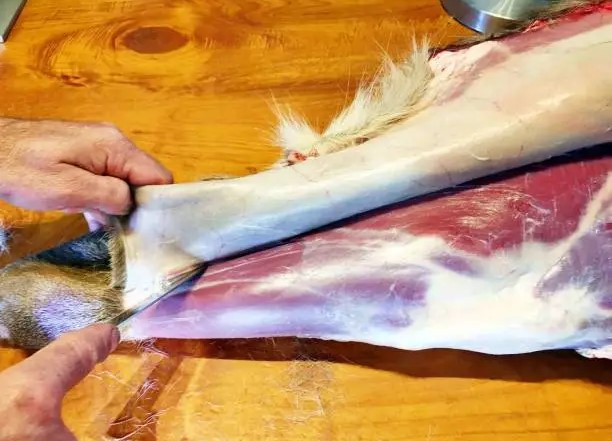
Credit: LazingBee
Plan what to do with your deer after harvesting it. As a responsible hunter, you should know how to manage and care for your game after hunting. That means you need to answer the following questions before you leave for hunting:
- How do you field dress a deer?
- Will you need a butcher, or can you butcher the deer yourself?
- Will you share the meat or stock it in your freezer? This determines your deer inventory.
Clear the Travel Paths
Clear access paths to your hunting areas and create multiple routes depending on the weather conditions. This will help you remove overgrown plants and grass that can cause major obstacles when getting your stand. A clear path also allows for a quiet approach to your target.
Collect and Organize Data
The long summer is also a perfect time to collect and organize deer data before you start hunting. Take time in the woods looking for deer signs and organizing your intel to ensure you are in the right spot during the hunting season. You should also record details about feeding and movement patterns and any other information you get from farmers.
Remember the as you collect and organize your hunting data. Deer are more visible and have consistent travel patterns throughout the year.

Credit: Michael Olson
Get In Shape
Keeping your physical fitness is one thing you can easily forget to consider as you prepare for deer season. Deer hunting may not be demanding, but it requires you to be fit to track down wounded deer.
Therefore, run, walk, and work out to ensure enough strength to drag a big buck out of deep drainage. It would help if you also practiced drawing and holding your bow for an extended period for a more accurate shot.
The Bottom Line
Deer hunting can be a steep learning curve with numerous changes every season. The activity is a fun way to manage natural resources while supplying families with delicious meals. However, it comes with challenges that may make it impossible for new and return hunters alike.
Therefore, ensure you have all the requirements before you start your deer hunting this coming season. These include your hunting licenses and permissions, weapons and gear, and enough data for a successful hunt.
